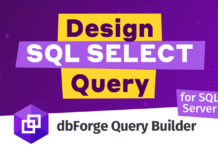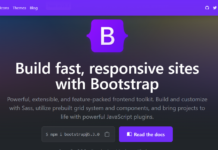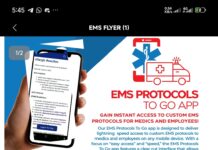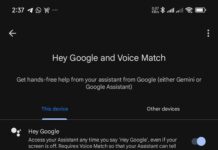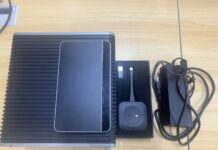It is the age of training AI models to analyze medical data for fast, safe, affordable healthcare delivery. There is already a growing number of ready-made AI tools that can be leveraged in healthcare software development. A prime example is the healthcare cloud features recently introduced by Google and Microsoft through Vertix AI and Fabric, respectively. These tools provide access to numerous clinical sources, allowing developers to help businesses and organizations evolve and innovate their healthcare solutions.
In this article, we’ll explore five invaluable tips on building custom healthcare apps infused with AI technology.

5 Tips on How to Build a Healthcare App
Today’s healthcare app development process must involve looking for opportunities to incorporate AI capabilities, especially generative AI tools. That’s because of its numerous benefits which include:
-
accelerating diagnoses;
-
relieving nurses of admin tasks;
-
enabling prompt remote patient care.
However, developing an AI-enabled healthcare app requires a dedicated team like you have at Uptech. We’re talking about a team with expertise in AI algorithms and healthcare regulations, a robust data security strategy, and a commitment to quality assurance and ongoing maintenance. Aside from these factors, here are the tips you can follow to build a viable healthcare app.
Do Market Analysis
There are many ways to find what people want and how much they’re willing to pay for it. But we will stress here that you should not reduce the market analysis to Google Search and online surveys.
To minimize the chances of errors and mistakes in market analysis, you have to dig deeper and engage in exhaustive but expertly guided conversations with potential customers, industry experts, and stakeholders.
Study Your Audience
For a healthcare app, you must conduct interviews or observe trends with sensitivity and precision. Following a piece of advice from Uptech’s product manager, it’s advisable to focus on methodology rather than delving into personal matters.
For example, when interviewing someone with bulimia, ask about their eating schedule, not their emotional responses to comments about their weight.
Choose App Type
Choosing a type of healthcare app to develop requires mapping out the app’s foundation, including the database and tools.
To do this, you have to collaborate with the healthcare software development team to define key aspects by answering questions such as:
-
App Focus
What specific type of healthcare app are you aiming to create? Will it be for patient care, fitness tracking, drug reminders, remote consultations, or something else?
-
Functionality
How will the app function? What features and capabilities do you envision, and how will they address the needs of your target users? What types of AI capabilities do you need? Do you need cross-platform or native tools?
-
Problem-Solving
What specific pain points or challenges will your app address? Identifying these issues is crucial for tailoring your app to meet real-world needs.

Create the Design
A great design should be consistent and intuitive, guiding users effortlessly through the app’s features. We can agree that user-friendliness is fundamental for a better user experience. It’s also recommended to keep things straightforward and reduce the mental effort users need to put in when using your app.
Like all other types of app development, design in healthcare apps is about making the app feel like a natural part of the user’s everyday life.
Make It HIPAA Compliant
The healthcare industry is the most regulated worldwide. In healthcare software development, you must strongly emphasize patient data security and privacy by aligning your development with regulatory requirements such as HIPAA ( the Health Insurance Portability and Accountability Act).
Here are the top tips you can follow to build a trustworthy healthcare app:
-
Limit Access
Implement role-based access control to restrict who can view sensitive health data.
-
Data Encryption
Use strong encryption protocols to protect personal health information and ensure data redundancy for quick recovery from any errors.
-
Choose Compliant Services
Ensure your healthcare app is safe by choosing service providers with a track record of HIPAA compliance. Customize these services as necessary to meet the required regulations, and if you need generative AI functionality, use HIPAA-compliant cloud infrastructure for machine learning model training and deployment.
Medical Software Development Services
Services offered by software development companies are split according to specific areas of expertise and client requirements. Let’s take a look at some of these services:
Digital Transformation
This type of tech solution helps entrepreneurs or health organizations automate healthcare processes. Machine and deep learning are highly needed for today’s digital transformation in healthcare. With mobile applications becoming increasingly popular, patients want to have their way with healthcare services that are delivered on their schedule.
For healthcare professionals, a digitized healthcare delivery model such as telemedicine is instrumental in streamlining healthcare services.
Discovery
This service focuses on the initial phase of medical software development. It involves thorough research and analysis to identify the specific needs and goals of the healthcare solution and if it’s market fit.
During the discovery phase, the Uptech software team collaborates closely with the client to understand their unique requirements and challenges. We gather valuable insights into the target audience, existing systems, and potential technical constraints.
UX/UI Design
UI/UX services in medical software are usually audience-specific; it could be patients or medical staff. However, like all other app development, the focus is on intuitive design and personalized user experiences.
There is also a lot of emphasis on a research-driven approach to efficient and compliant software that improves user satisfaction at the same time.
Custom Medical Software Development
Building a medical software product means hiring a team comprising developers, designers, and domain experts.
The development process must start with understanding business goals and internal processes before moving to MVP development.
A Case Study of a Mental Health App Built by Uptech
Uptech combined a mental health product and a learning platform in one app. The development of this healthcare app was driven by the client’s goal of improving users’ well-being and success. What Uptech did to fulfill these goals serves as a practical lesson of the importance of market analysis, user research, design, and quality assurance.
Uptech validated the idea of the mental health app and used the hypothesis-driven approach to create an MVP. Meaningful conversations with potential users and stakeholders and an understanding of market dynamics, competition, and user value shaped the app’s unique and effective features.
During the Discovery stage, the Uptech product manager found out that the client’s vision could be achieved by providing intuitive virtual care. As a result, the primary app feature became virtual mental support provided through phone calls, chats, and video tutorials. You can explore a detailed overview of the healthcare app development journey here.
Summary
Before adopting any AI capabilities, your custom healthcare software development should begin with understanding business goals, internal processes, and extensive market research. There is no escape from this for a business or an organization that wants to create a healthcare app that is effective, secure, and aligned with the needs of users.



